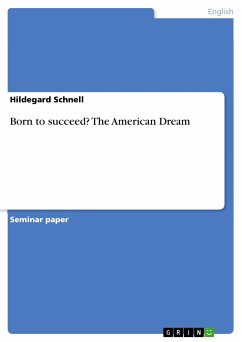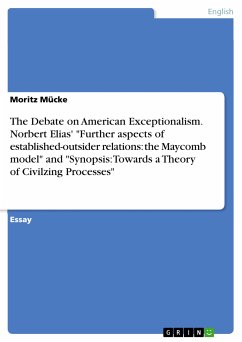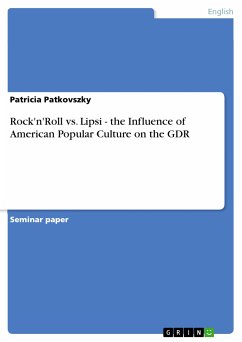Seminar paper from the year 2006 in the subject American Studies - Culture and Applied Geography, grade: 1,3, University of Duisburg-Essen, course: Proseminar: An Introduction to American Civilization, language: English, abstract: “We were brought up to succeed, weren’t we?” (Arthur Miller “The Price”, 109). Is this true? Were we really brought up only to succeed in order to achieve material aplenty and is this what the American Dream is all about: Success as the reason for living? In my research paper I will try to find an answer to these questions by looking at the origin of the concept of the American Dream, the critical interpretation of the American Dream referring to itschange of values. Furthermore, I am going to discuss the influence of the American Dream on popular imagination and, as a conclusion, I will briefly state the effect it has on political rhetoric. So, the main purpose of my paper is to show that the notion of the American Dream has not always been identified with materialism but with success primarily as a God given task intended for self-salvation. Therefore, I will point out how this aspect of a success in religious and moral terms changed into an aspect of material success only. Further, I will show, according to this change that the aspect of material success promotes selfish individuals instead of a “Great Society” in which the American Dream is realized in the community since there is “nothing whatever in a fortune merely in itself” (Adams “The Epic of America”, 416). While the American Dream stands on the one hand for a land of opportunity where everyone is given the chance of attaining something according to one’s ability, the American Dream stands on the other hand for a struggle to succeed without much social or emotional support that eventually turns into an American nightmare.
Bitte wählen Sie Ihr Anliegen aus.
Rechnungen
Retourenschein anfordern
Bestellstatus
Storno









